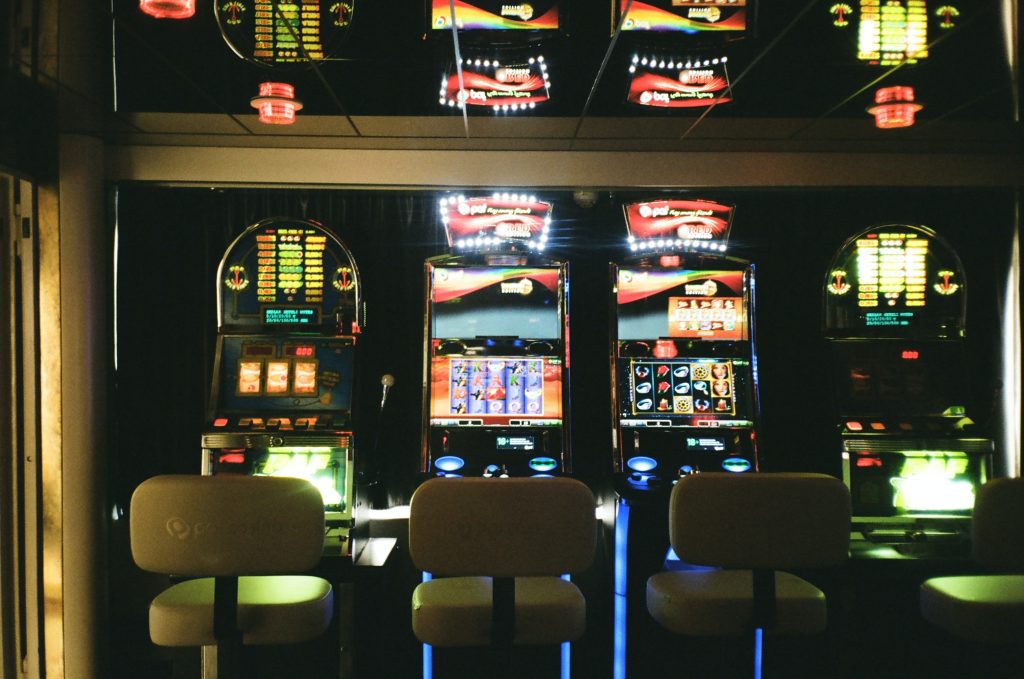Author Name: Sebastian Scheplitz
With online casinos operating unhindered in Germany for years, 20212 is when regulators sat up and took note with the new “Glücksspielstaatsvertrag” (GlüStV). But what are these regulations?
Are they useful?
Or, is it a case of “If it ain’t broke, don’t fix it“?
As slots supremo operator Mernov became the first company to be greenlit for online gambling in Germany, the country famous for industrial consumption of beer, attention to detail, and punctuality you can set your watch by, the iGaming landscape in Germany is changing.
Formerly operating in what regulators, operators, and players alike call a ‘legal gray area’ – and around fifty shades thereof – it was tricky knowing exactly which online casinos to play at.
As well as other online gambling musings, we’ll endeavor to answer the aforementioned questions as comprehensively as humanly possible.
If you’re staring at the wall and pondering, “Is online gambling regulated in Germany?,” we’re here to answer those musings.
A Brief History of Online Gambling in Germany
Before Tim Berners Lee’s brainchild – aka the internet – went mainstream in the mid-'90s, Germans enjoyed a rich gambling history.
Dating back to the Roman Empire, gambling has always been entwined with German culture. The oldest casino known to humankind – the Casino Wiesbaden, was built in 1810 with original features dating back to Roman times.
With the land-based German gambling heritage box well and truly ticked, the future, of course, lies in online gambling.

Austrian casino Bwin was the first to open its virtual yet unlicenced doors to players in 2007 and remains to this day a highly popular online gambling establishment for German players.
Post-launch, Bwin was subsequently blacklisted from accepting German players, a ruling overturned following a lawsuit filed by Bwin in December 2007.
The legal accomplishment experienced by Bwin opened the floodgates for pretty much every household casino name on the planet – and these online casinos have been operating with full marketing capacity to this day.
But things are changing, and fast.
Is Online Betting Legal in Germany? Gambling Laws and Regulations Germany 2022
The Fourth Interstate Treaty on Gambling (GlüStV) is the framework for gambling laws and regulations in Germany, 2021, 2022, and beyond.
The dramatically titled treaty includes a new gambling regulator that aims to put iGaming practices under the microscope, ensuring a safe environment in which players can gamble online.
The new overseer of online gambling in Germany, the Glücksspielbehörde, commenced operations on the 1st of July, 2021. While local jurisdictions still have sway over their varying approach to regulations, this is underwritten by parameters outlined by the Glücksspielbehörde.
Similar to the state-by-state online gambling regulatory model employed by the USA, German regulations are defined locally, rather than on a national level. An example of this can be seen in March 2021’s German state of Thuringia holding a monopoly on online casinos.
Licensing
Germany-focussed licensing with gambling permits awarded to operators lasting a total of five years. The Interstate Treaty on Gambling (ISTG) states that private companies are allowed to apply for iGaming licenses for the provision of:
- Video slots
- Sportsbook
- Poker
To obtain a permit, a provider is required to fulfill the following three requirements: valuable consideration, determination of winnings, and a chance to win.
The licensing body is based in Halle (Saale), in the eastern-central German federal state of Saxony-Anhalt.
Game Regulation
Table games, including casino poker, roulette, blackjack, pai gow, baccarat, and dice, are covered by the regulator comparable to previous legislation that only allowed for the provision of sports betting.
The biggest – and perhaps most interesting – development is that operators in any given jurisdiction will now be able to offer poker games and video slots – the latter far surpassing any other gaming option in popularity.

The marketability of slots combined with the unmatched prevalence of online slots makes them a win not only with the German audience but also globally, with variety being the core of every casino’s game catalog.
Online casino regulations in Germany stipulate that online video slot bets are now capped at €1 per spin, in diminutive contrast to the often-seen maximum spin wager limited similar to the price of a secondhand car in fairly good condition.
Furthermore, each spin must last a total of five seconds – no more, no less – and restrictions are also in place for progressive slot titles.
Verification Policies
Know your customer (KYC) policies for the German online gambling market, also known as verification, will require players to provide the following details during the online casino sign-up process:
- Full name
- Date of birth
- Place of birth
- Address
Due diligence teams are then tasked with undertaking verification confirmation. A stroke of genius (or some might say data security insanity) from the treaty comes in the form of a shared database, accessible by all operators, nationwide.
The positive implications for responsible gambling and proof of funds data are valuable assets to the gambling law review for Germany and an effective tool for protecting vulnerable players.
Marketing
Online casino marketing departments have extensive promotional roadmaps for campaigns that often stretch 12 months into the future.
While Germany doesn’t have strict guidelines for the language used in promotional material, online casino advertising faces a media blackout between the hours of 06:00 and 21:00, minimizing the exposure of online casinos to younger members of society.
In-game advertising also faces restrictions, with cross-promotions for other games facing a blanket ban. Other stipulations include that online casino advertisements should not be misleading or appeal to young people.
Direct marketing is also facing limitations with a cap placed upon the number of SMS and voice calls, meaning marketing folks need to nail their iGaming content writing and translation strategy with a combination of precision and local knowledge.
Sportsbooks
Germany has enjoyed a long (and regulated) history with sports betting. The most pertinent regulation for sportsbook players is a €1000 limit, per month.

Live betting is also permitted, yet the finer points of regulation have yet to be finalized. Considered a serious breach of regulation, any activities related to match-fixing or the sanctioning of unlawful conduct via wagering on a sporting outcome bring with it heavy penalties.
Foreign-Owned Operations
Online casino regulations in Germany also stipulate that non-locally owned casinos will require a physical base in the country and be subject to German taxation laws of 5.3% turnover.
A further necessity is that the online casino must employ German staff members to obtain a gaming license.
Crypto Casinos
As blockchain tech slowly replaces centralized currency, crypto casinos continue to blossom, both in the metaverse and the traditional online space, German regulators aren’t too hot on this particular financial development.
Perhaps due to the fact that cryptocurrency online gambling transactions are near-impossible to verify due to the privacy afforded by blockchains, or perhaps that banks globally are scared witless by the prospect of losing control and potentially leaning on German regulators.
All remains to be seen.
What’s clear: if you’re a crypto casino, you’re not doing trade in Germany. Not legally, anyway.
Mernov – A Regulatory Revelation
Operator of slots-focussed JackpotPiraten and Bing Bong casinos, as of May 2022, has become the first online casino in history to be awarded a German slots gaming license.
As the sole operator on Germany’s regulatory whitelist, the Mernov group leads the pack when it comes to a fully licensed German casino. Gaming platform provider Alteac weighs in:
“I congratulate our client, Mernov, for an exceptional achievement of being the first operator to receive a national online slots licence in Germany,” Alteac Chief Executive Christian Sael said. “We are proud of our contribution to this achievement and are looking forward to launching Jackpotpiraten.de and Bingbong.de very soon with some of the most popular online slots available in the German market.”
What’s next?
Germany is the largest gambling market in the whole of Europe, estimated to be valued at around €6.4 billion in 2021. This gargantuan figure has arisen due to the German’s insatiable appetite for online gambling, and also the lack of involvement of regulators.
To compare Germany to the UK gambling market operating under the iron fist of the UKGC, Germanic online casinos have flourished, with operators cashing in on Germany’s more than welcoming online gambling market share.
While a firewall blocking access to non-German licensed casinos is a little far-fetched, operators need to be prepared for further legislation that could transform the online casino’s approach to marketing.
The importance of marketing managers, content writers, and translators keeping up to date with the ever-shifting ground space of iGaming regulation in Germany is something that would be foolish to overlook.
Header Image Source: Photo by Conny Schneider on Unsplash
How did you like Sebastian Scheplitz’s blog post “Exploring German iGaming Regulations in 2022”? Let us know in the comments if you have anything to add, have another content idea for iGaming blog posts, or just want to say “hello.” 🙂









3 Comments